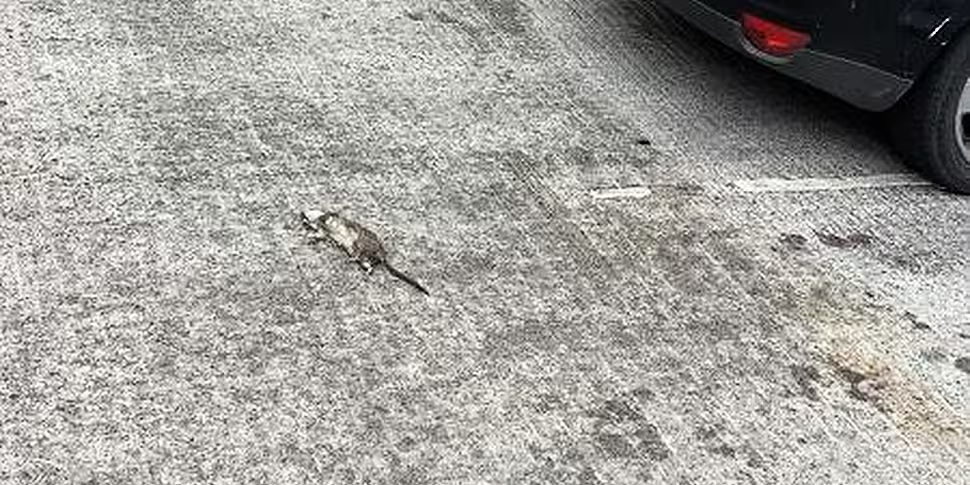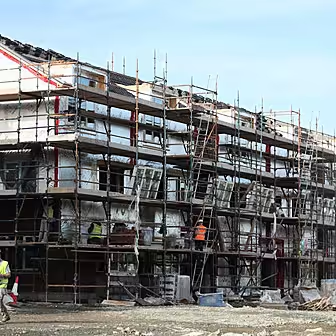Some residents of Dublin City Council flat complexes say they will 'storm' the council to have a rat problem dealt with.
A petition has been picking up signatures online, calling for action to be taken to sort out rodent infestations in some inner-city flats.
Reporter Josh Crosbie for Newstalk Breakfast went out to some of those flat complexes to see for himself.
One resident in the York Street flats, Ryan Mooney, says: "Over the last couple of months especially - but over the last few years really - the rat infestation problem has grown substantially.
"They've now started coming on to the balconies, they're in the pram sheds - most people can't use their own pram sheds.
"A lot of the kids won't go out the back garden because they're all underneath the balconies, they're in the grass, they're coming up through the pipes.
"There's hundreds of them in this flat complex alone".
Ryan says there are families of rats in the back gardens which the council "hasn't tended to... the weeds is overgrown."
And he claims the council has sought to stop people handling the problem themselves.
"When the residents of the flats have came out and said that they'll actually tend to the problem themselves by putting out traps, the council don't want to let them do it.
"They say it's inhumane".
Ryan says rats are even coming in to some apartments.
"It's absolutely disguising, it's sub-standard accommodation that the council is allowing the rats to bite through the pipes and actually come in to kitchens.
"It's disgusting and it shouldn't be allowed happen".
At the nearby Bishop Street complex, Paula says residents got no help.
"It's gone out of control now that the city council wouldn't help us to do any of the work in the gardens.
"All the neighbours had to come down and strip up all the gardens, put money together [to] buy poison for the rats, the weed killer all the [things] you pick up the dirt with.
"All the old people on the bottom are terrified - they're wakening up and they're crawling in around their little back balconies.
"It's sickening to think because the amount of money that we pay rent.
"If you're working you pay top rent; all of us that work here [pay] top rent.
"Even to the conditions of the stairs and everything, it's just gone beyond now".
 Residents cut back garden overgrowth. Picture by: Josh Crosbie
Residents cut back garden overgrowth. Picture by: Josh CrosbieWhile fellow resident Catherine says she's not sure who to turn to.
"If I rented a house, my landlord has to fix the problem if I have a problem.
"My landlord is Dublin City Council and they won't do a thing for you.
"I've young kids - [the rats are] in the pipes now - what if my child is drinking the water: is that the same water, the same pipes?
"I'm not sure, so you're having to go and buy bottled water to make the baby's bottles.
"We're not living like this anymore: if we've to storm the corporation that's what we're going to do".
Dublin City Council denies the issue is down to neglect.
In a statement, it says: "We have received a number representations from councillors on the issue over recent months and we acknowledge that there appears to be a significant increase in the number of rats coming up from piping networks onto the streets and other public areas.
"The disruption of ground by new construction developments appears also to be disturbing and shifting nests of rats.
"We do not accept that this problem is caused by neglect of our own apartment complexes and every effort possible is being implemented to eliminate it, notwithstanding the COVID-19 restrictions in place over the last 18 months.
"The council continues to actively work on this issue whenever and wherever it arises."
It adds that where the council identifies a problem in relation to vermin, a number of steps are taken including drain surveys, pest proofing bins and cutting back overgrown areas.
"To deal with this issue effectively, it is essential to eliminate the food source for pests and so we work with all relevant parties to identify and reduce any accessible food source for rodents," it says.
The council says it will continue to work with the HSE and all other relevant stakeholders to identify and resolve any issues that arise in its housing estates and apartment complexes.









